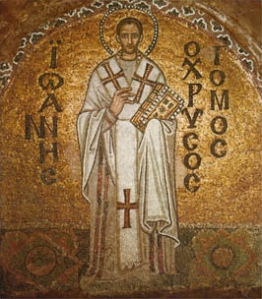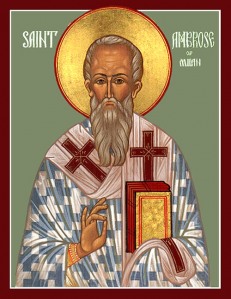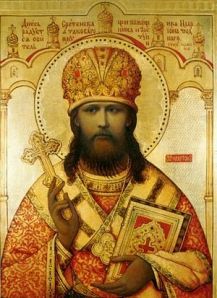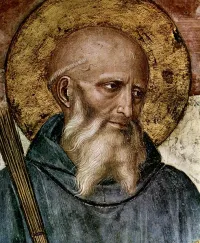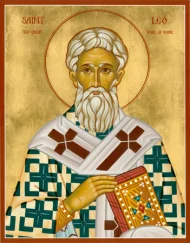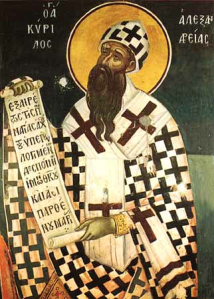 And when He had thus spoken, He cried with a loud voice, Lazarus, come forth. And he that was dead came forth, bound hand and foot with grave-clothes; and his face was bound about with a napkin (John 11:43-44).
And when He had thus spoken, He cried with a loud voice, Lazarus, come forth. And he that was dead came forth, bound hand and foot with grave-clothes; and his face was bound about with a napkin (John 11:43-44).
Immediately, the dead man started up, and the corpse began to run, being delivered from its corruption and losing its bad smell, and escaping through the gates of death, and without any hindrance to running being caused by the bonds.
And although deprived of sight by the covering which was over his face, the dead man runs without any hindrance towards Him Who had called him, and recognises the masterful voice.
For Christ’s language was God-befitting and His command was kingly, having power to loose from death, and to bring back from corruption, and to exhibit energy beyond expression.
The use of a piercing cry, however, was altogether strange and unwonted in the Saviour Christ. For instance, God the Father somewhere says concerning Him: He shall not strive nor cry aloud, and so on.
For the works of the true Godhead are without noise or tumult of any kind; and this was the case with Christ, for He is in His Nature God of God and Very God.
So then what do we say when we see that He cried aloud in an unusual manner? For surely no one will degrade himself to such a depth of folly as to say that Christ ever went beyond what was fitting or indeed ever erred from absolute perfection.
How then is it to be explained? Certainly the cry has a reason and a purport, which we feel it necessary to state. It was for the good of the hearers.
Christ wrought the miracle upon Lazarus as a sort of type of the general resurrection of the dead, and that which was fulfilled in the case of an individual He set forth as a beautiful image of what will be universal and common to the whole race.
For it is part of our belief that the Lord will come, and we hold that there will be a cry made by the sound of a trumpet, according to the language of Paul, proclaiming the resurrection to those that lie in the earth, although it is manifest that the deed will be effected by the unspeakable power of the Almighty God.
For on this account also the Law given by Moses, when laying down directions concerning the feast of Tabernacles, says: Celebrate it as a memorial of trumpets.
For when human bodies are about to be set up again, as tabernacles, and every man’s soul is about to take to itself its own bodily habitation in a way as yet unknown, the masterful command will be previously proclaimed, and the signal of the resurrection will sound forth, even the trump of God, as it is said.
Cyril of Alexandria (c. 376-444): Commentary on John, book 7 [on John 11].
